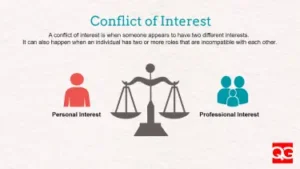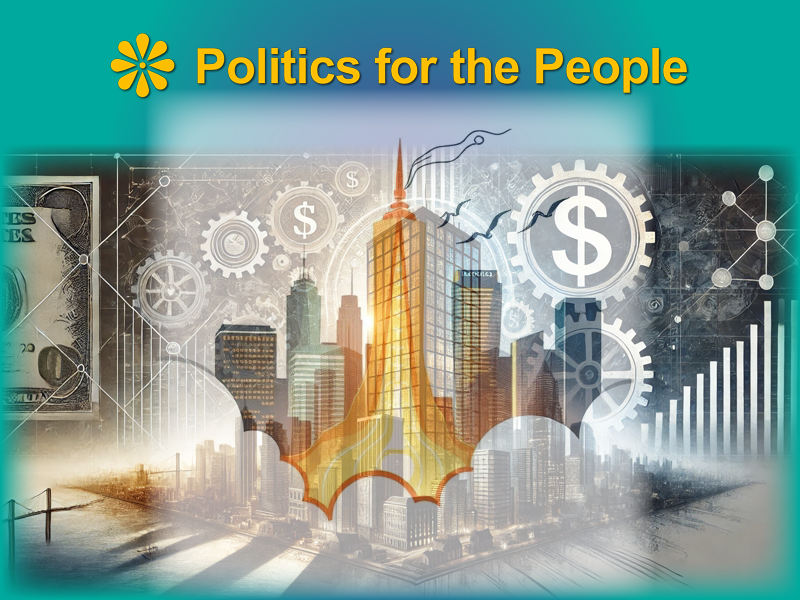Introduction: Curbing Corporate Power
In Australia, the pervasive power and influence of corporations have cast long shadows over the nation’s economy, democratic processes, and environmental health. The relentless pursuit of profit by these entities has reached a critical point, calling for immediate governmental action to avert potentially disastrous consequences for the societal fabric of the country.
The Perilous Power Dynamic
Corporate Influence Over Politics
In recent decades, corporations in Australia have used their vast financial resources and extensive networks to gain an undue amount of influence over political decision-making. This influence is often exerted through substantial lobbying efforts, significant campaign contributions, and the revolving door between corporate positions and political office. Such mechanisms enable corporations to shape policies in ways that align with their profit-driven goals, often sidelining broader public interests and ethical considerations.
Conflicts of Interest and Democratic Subversion

The deep entanglement of corporate interests with political agendas poses significant risks to the integrity of democratic institutions. This relationship raises concerns about conflicts of interest, where decisions may be made that benefit corporations at the expense of the public. When corporate lobbyists have more influence over legislation than the electorate, the core tenets of democracy—fairness, equality, and representation—are jeopardized, leading to a governance system that serves the few rather than the many.
Economic Precariousness
Short-Term Profits Over Long-Term Stability
Unregulated corporate behaviour often prioritizes short-term financial gains over the long-term stability of Australia’s economy. Corporations might engage in practices such as aggressive tax avoidance, speculative financial activities, and unsustainable resource exploitation, which can lead to economic bubbles, increased inequality, and higher vulnerability to global economic downturns. This short-sighted focus undermines sustainable economic growth and can precipitate financial crises that have far-reaching consequences for all Australians.
Impact on Competition and Innovation
The dominance of large corporations in several sectors of the Australian economy stifles competition and discourages innovation. When a few large entities control significant market share, they can set prices, dictate terms, and bar new entrants, thereby reducing consumer choice and stifling innovative ideas and technologies. This not only curbs economic diversity but also impedes Australia’s ability for innovation, which is vital for its long-term economic resilience.
Environmental Degradation
Sustainable Practices vs. Corporate Expediency
The environmental policies—or lack thereof—adopted by profit-driven corporations have led to significant ecological damage in Australia. Practices such as irresponsible mining operations, excessive deforestation, and inadequate waste management are particularly detrimental. These actions accelerate the degradation of Australia’s unique ecosystems and contribute to global challenges like climate change.
Long-Term Environmental Impacts
The long-term consequences of corporate-induced environmental degradation are not only profound but often irreversible. These impacts extend far beyond localized environmental harm, threatening the health, stability, and sustainability of ecosystems and human societies. The destruction of habitats disrupts the delicate balance of ecosystems, leading to the loss of biodiversity—a critical part of planetary health.
Endangered species face extinction as industrial activities like deforestation, mining, and urban expansion encroach on their habitats. For instance, Australia’s unique ecosystems, home to species like koalas and great barrier reef corals, are increasingly threatened by these activities.
The pollution of air, water, and soil caused by corporate practices worsens these challenges. Toxic emissions from factories, plastic waste, and chemical runoff into rivers and oceans contribute to the degradation of vital natural resources. Polluted water supplies directly affect both marine and terrestrial life, and polluted air contributes to respiratory and cardiovascular illnesses in humans, disproportionately affecting vulnerable populations such as children, the elderly, and low-income communities. Additionally, the health of agricultural lands is compromised, reducing crop yields and threatening food security.
In the context of climate change, corporate practices that contribute to greenhouse gas emissions—such as fossil fuel extraction, deforestation, and industrial agriculture—accelerate global warming, leading to more frequent and severe natural disasters. Rising sea levels, prolonged droughts, and catastrophic bushfires, as seen in recent years in Australia, show the compounding effects of corporate environmental neglect. These events have devastating social and economic consequences, including displacement, loss of livelihoods, and increased healthcare costs as communities grapple with stress-related illnesses and injuries.
The degradation of natural resources also threatens future generations, compromising their ability to meet basic needs such as access to clean water, breathable air, and fertile soil. Without stringent action to address these issues, the environmental damage caused by corporate activities will create long-term, systemic risks that undermine public health, economic stability, and global biodiversity.
Threat to Democracy
Erosion of Public Trust and Accountability
The undue influence of corporations over government policies erodes public trust in governmental institutions. When the electorate perceives that corporate interests are being prioritized over public welfare, it can lead to widespread disillusionment with the democratic process, reducing civic participation and increasing public cynicism about politics.
Corporate Lobbying vs. Public Interest
The power and influence of corporate lobbying pose a significant threat to the alignment of public policy with the common good. Through well-funded lobbying efforts, corporations exert considerable influence over legislative and regulatory processes, often shaping laws and policies to prioritize profits over public welfare. This disproportionate sway often undermines the principles of democracy, where government decisions should reflect the needs and interests of the majority.
Corporate lobbying can lead to deregulation and weakened environmental protections, allowing industries to bypass accountability for harmful practices. For instance, the fossil fuel industry has been notorious for lobbying against renewable energy policies and emissions reduction targets, despite overwhelming public support for climate action. These efforts have delayed Australia’s transition to sustainable energy sources, perpetuating dependence on coal and gas while worsening climate change. Legislation curbing corporate power is urgently needed.
Similarly, the agricultural and mining industries often lobby for relaxed restrictions on land use, water extraction, and pollution controls. This results in policies that enable overexploitation of natural resources, leading to environmental degradation and the displacement of Indigenous communities. Such lobbying efforts can even extend to blocking legal recognition of land rights, further marginalizing affected populations.
The misalignment between corporate interests and public welfare is not limited to environmental issues. In healthcare, pharmaceutical companies lobby for extended patent protections, driving up medication costs and restricting access to affordable treatments. In education, private corporations influence policies that favour the privatization of schools and vocational training, undermining the quality and accessibility of public education.
This dynamic erodes trust in government institutions and fosters public cynicism, as citizens perceive that decisions are being made for the benefit of a powerful few rather than the majority. The undermining of democratic processes also stifles innovation and progress by prioritizing short-term profits over long-term societal benefits.
To counterbalance corporate lobbying, greater transparency and accountability in policymaking are essential. Governments must enforce stricter regulations curbing corporate power, such as mandatory disclosure of lobbying activities, caps on political donations, and conflict-of-interest laws.
Strengthening public participation in decision-making processes—through citizen assemblies, consultations, and referendums—can help ensure that policies align with public interest rather than corporate agendas.
Ultimately, addressing the tension between corporate lobbying and public welfare requires a commitment to democratic principles that place people and the planet above profits. By prioritizing the common good, governments can restore public trust and create policies that help society while holding corporations accountable for their impact on the environment and communities.
Conclusion
The unchecked power of corporations in Australia is a significant threat to the nation’s democratic integrity, economic stability, and environmental health. Immediate, decisive government action curbing corporate power to implement stringent regulations, enhance transparency, and protect whistleblowers, ensuring that corporations contribute positively to society rather than undermining it.
Question for Readers
What strategies do you believe are most effective in reducing corporate overreach and protecting public interests in Australia?
Call to Action
It’s time to take a stand against corporate dominance. Share your thoughts, engage in community discussions, and advocate for stronger regulations. Share this article to raise awareness and join the movement for a balanced corporate governance system in Australia.
Don’t forget to share this article with your contacts and on social media to help spread the word about the importance of curbing corporate power in Australia.
References:
How a sleeper issue inside the big four accounting giants could topple the economy: https://youtu.be/BldeCUEf0DQ
Corporate influence over federal politics is threatening our democracy: https://www.hrlc.org.au/news/2022/1/31/corporate-influence-over-federal-politics-is-threatening-our-democracy-new-report-finds
Extensive reforms needed to curb corporate power in Australian politics: https://www.theguardian.com/australia-news/2022/jan/28/extensive-reforms-needed-to-curb-corporate-power-in-australian-politics-human-rights-group-says
Corporate power in Australia: https://australiainstitute.org.au/report/corporate-power-in-australia/

